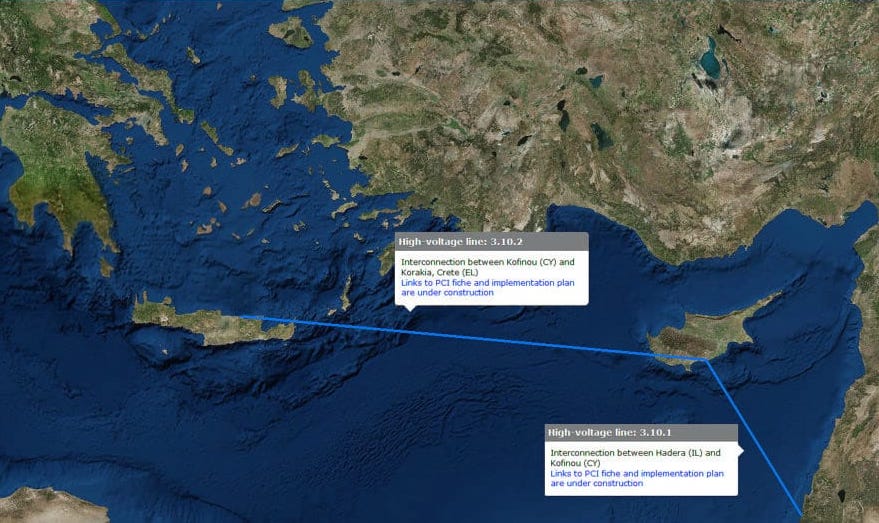Cypriot consumers could save as much as €400 a year with the introduction of the Great Sea Interconnector – a mooted subsea electricity cable linking Cyprus to Greece – its promotors said on Tuesday.
Chairman and CEO of Greece’s Independent Power Transmission Operator (Admie) Manousos Manousakis and other officials are on the island and on Tuesday gave the energy ministry a presentation of a cost-benefit analysis, requested by the Cypriot government which is considering becoming a direct stakeholder in the cable project.
Speaking to the Cyprus News Agency (CNA) later in the day, Manousakis pitched the €1.9 billion project as unquestionably beneficial to Cyprus and consumers here.
He said their analysis compares two scenarios – linking the Cyprus electricity grid to the European mainland, and not linking it.
“Beyond any doubt, the results show that it is far more beneficial to Cypriot consumers to have a system connected to Europe,” said Manousakis.
He cited the key finding, namely that an average household consuming five megawatt-hours of electricity annually would stand to save at least €400 a year.
And these savings would vastly offset the cost to the average Cypriot consumer for construction of the cable. Each household would be charged around €150 from 2025 – the anticipated start of construction – up to 2029. That works out to between €25 and €30 a year, Manousakis said.
This means that from the first year of operation of the interconnector, the cost to consumers will already have been covered, and from then on consumers would immediately benefit from savings.
The Greek entrepreneur declined to comment when asked about Nicosia’s decision to invest or not. But he did say that having Cyprus as a state invest would lend political support to the project. Also, the Cypriot state as a stakeholder would generate revenue which it could then use to further bring down the cost of electricity.
Responding to questions, Manousakis confirmed that Admie does seek a fee – to be paid by consumers here – right from the start of construction of the cable. He said this method is commonplace – charging a fee from the outset to recoup part of the vast capital expenditures. In addition, having a revenue stream boosts the project promoter’s creditworthiness and so makes it easier to secure financing for the project.
The Admie boss added that he does not expect the energy regulator in Cyprus to object to this fee.
Energy Minister George Papanastasiou confirmed the presentation of the cost-benefit analysis. But regarding the state’s decision to invest, he said the clock will start ticking once the government takes formal receipt of the analysis sometime in the next few days.
The government is considering directly investing up to €100 million.
Papanastasiou said the government will now commission an external consultant to assess the cost-benefit analysis. Based on the findings, the government will make its decision.
The Great Sea Interconnector was formerly known as the EuroAsia Interconnector – after a Cypriot company of the same name. In October 2023 the Cypriot project promoter dropped out of the project, with the baton handed over to Greece’s Admie.
Admie is 51 per cent owned by the Greek state. The State Grid Corporation of China has a 24 per cent stake, with the rest owned by other investors.
In January 2022 the European Commission had approved €657 million under the Connecting Europe Facility (CEF) for the cable project. There was also an additional grant of €100 million through the Cyprus Recovery and Resilience Plan, part of the EU Recovery and Resilience Facility.






Click here to change your cookie preferences